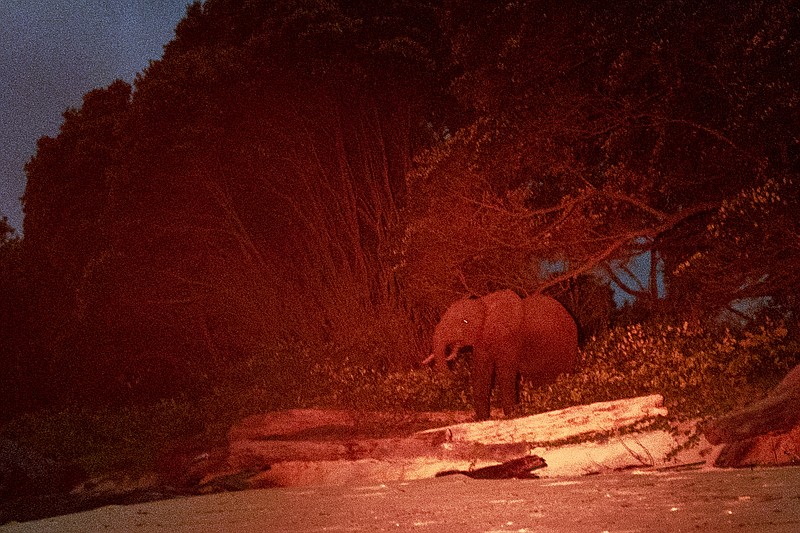PONGARA NATIONAL PARK, Gabon (AP) - Loss of habitat and poaching have made African forest elephants a critically endangered species. Yet the dense forests of sparsely populated Gabon in the Congo River Basin remain a "last stronghold" of the magnificent creatures, according to new research that concluded the population is much higher than previous estimates.
Counting forest elephants is a far bigger challenge than surveying plains-dwelling savanna elephants from the air. It takes difficult and dirty scientific work that doesn't involve laying eyes on the elusive animals that flee at the slightest whiff of human scent.
Instead, researchers have been trekking for years through dense undergrowth collecting dung from Gabon's forest elephants and analyzing the DNA from thousands of samples to determine the number of individual elephants in each plot of land examined.
Now the survey by the New York-based Wildlife Conservation Society and the National Parks of Gabon, released Thursday, has concluded that the central African country of about 2.3 million people harbors about 95,000 forest elephants.
Previous estimates put the population at 50,000 to 60,000 - or about 60 percent of the world's remaining African forest elephants.
Herds have nearly been decimated elsewhere in the region Gabon shares with conflict-ridden countries such as Cameroon, Congo and Central African Republic, according to researchers.
Central Africa has the largest number of forest elephants in the world, although figures have fallen by more than 86 percent during a 31-year period, according to the International Union for Conservation of Nature, which cites increasing threats of poaching and habitat loss.
The latest new survey in Gabon is the "first nationwide DNA-based assessment of a free-ranging large mammal in Africa," according to the researchers. The technology is also being used to count elephants and tigers in India.
"Gabon is quite unique, certainly for forest elephants. But actually across Africa where elephants occur, it's very unique in that what we call potential elephant habitat pretty much covers the entire country," said Emma Stokes, the WCS Africa regional director.
"We found elephants were distributed across almost 90 percent of the total surface area of the country," she said. "And you know, Gabon has forest cover of up to 88 percent of the country. That's very unusual."
In Gabon, tourists may still see some elephants on the beaches and coastal forests of the Atlantic coast. But, unlike their bigger savanna cousins that roam the plains of southern Africa in abundance, most forest elephants live in dense forests so counting them is painstaking work.
The solution: Trail their dung for genetic material. For three years, research teams would spend a month in the bush, walking about 7 miles a day seeking elephant fecal samples, breaking only for a week at a time.
About 65 percent to 70 percent percent of all African forest elephants surviving today live in Gabon, said Lee White, Gabon's minister of water and forests.
"That's an indication of the fact that Gabon has resisted the slaughter and the tragedy that has played out in the countries around Gabon," White said.
Conservation efforts include massive public awareness campaigns and efforts to deter cross-border poachers.

